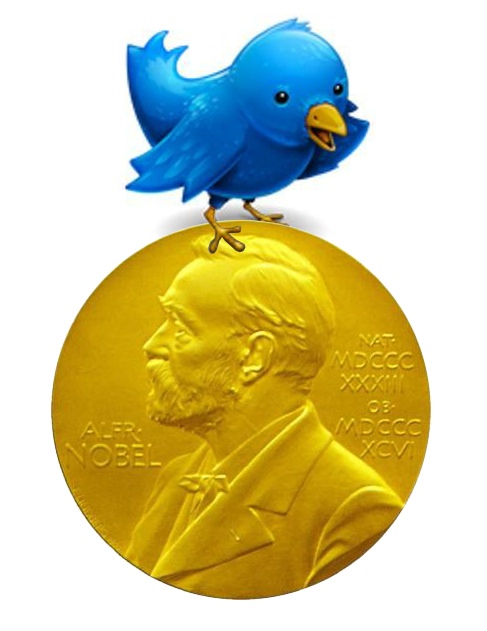 In an op-ed last week in the Christian Science Monitor, Mark Pfeifle, a former national security adviser to George W. Bush, makes the case for the micro-blogging site’s nomination for the prestigious peace award.
In an op-ed last week in the Christian Science Monitor, Mark Pfeifle, a former national security adviser to George W. Bush, makes the case for the micro-blogging site’s nomination for the prestigious peace award.
When traditional journalists were forced to leave the country, Twitter became a window for the world to view hope, heroism, and horror. It became the assignment desk, the reporter, and the producer. And, because of this, Twitter and its creators are worthy of being considered for the Nobel Peace Prize.
[…]
Without Twitter, the people of Iran would not have felt empowered and confident to stand up for freedom and democracy. They did so because they knew the world was watching. With Twitter, they now shout hope with a passion and dedication that resonates not just with those on their street, but with millions across the globe.
It’s really hard to know where to begin with a crazy story like this. So I’ll just throw out a few thoughts.
First, what is a national security adviser for the Bush Administration doing even writing on this subject, and why did the Christian Science Monitor dignify his opinion with publication? Counseling those in power on when to employ violence rather than nonviolence is Pfeifle’s expertise.
Second, how does giving the prize to a website or technology make any sense considering the original intention of Alfred Nobel? According to his will, the prize for peace was to be awarded to the person who “shall have done the most or the best work for fraternity between nations, for the abolition or reduction of standing armies and for the holding of peace congresses,” during the preceding year.
While the Nobel Committee has on numerous occasions given the award to organizations that are dedicated in varying degrees to promoting peace – such as the Red Cross, Amnesty International, and the American Friends Service Committee – rather than individual people, Twitter is simply a texting service that happened to come in handy during recent protests.
How Twitter meets any of the other criteria, apart from possibly improving the fraternity between nations (which every other tool of communication does as well), is beyond me. More importantly, however, the site is fundamentally amoral. Therefore, it can and probably is being used to push intolerance, hate and war as well. Just search for your favorite derogatory or racist word on Twitter to get a taste of the garbage that is regularly “tweeted.”
Third, the idea that Iranians would not have felt empowered to do what they did without Twitter truly shows Pfeifle’s ignorance on the history of nonviolent movements. In recent decades, ordinary people have brought down dictatorships and repressive regimes in many countries – including Chile, Argentina, the Philippines, South Africa, Poland, Serbia, and the Maldive Islands, to name just a few – without violence and without Twitter.
